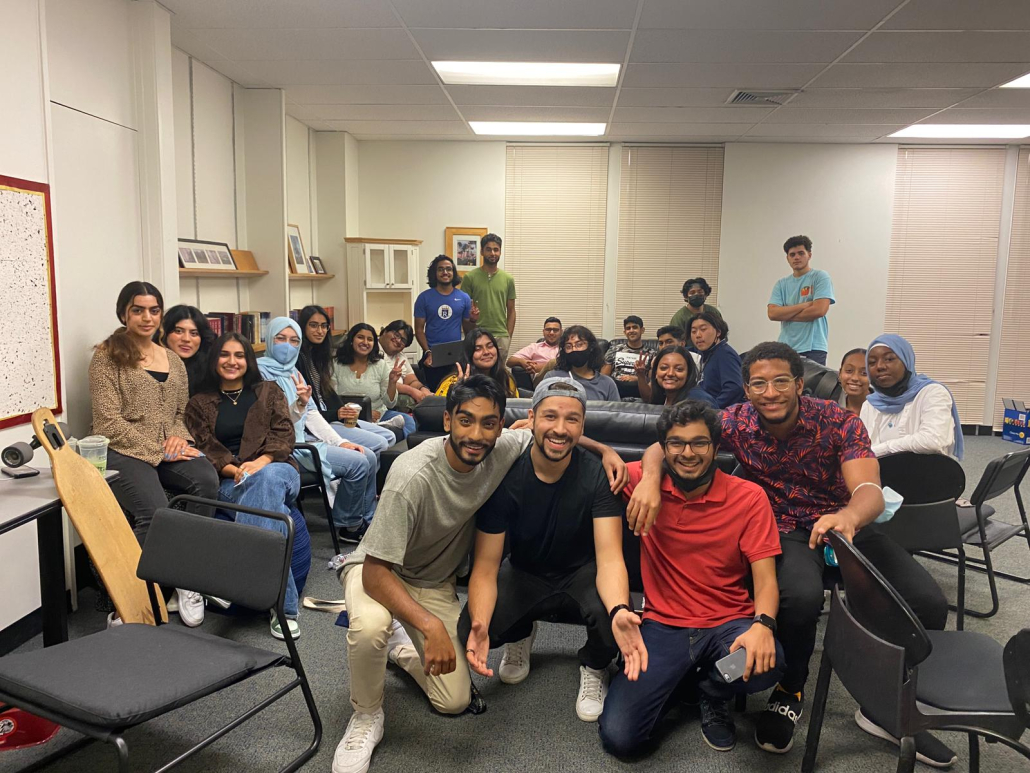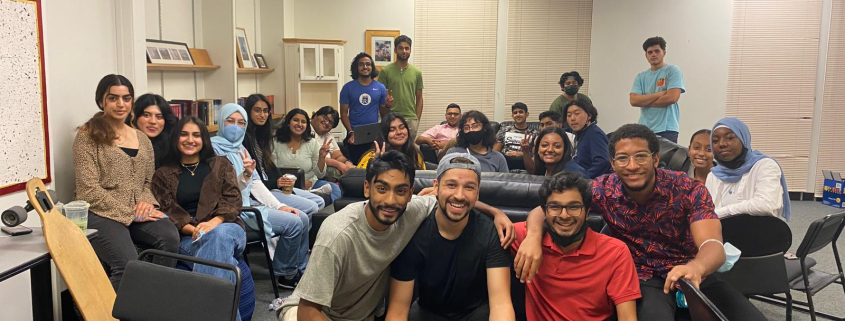Muslim students find community in observing Ramadan

Ramadan, determined by the lunar cycle, began Friday evening, marking the first time since the start of the pandemic that Muslim families broke their fast together and gathered to pray without coronavirus restrictions.
Typically lasting for 29 or 30 days — depending on the sighting of the moon — Ramadan is a sacred time for Muslims to worship God and an opportunity for devotion and reflection. From dawn to sunset, Muslim students at USC will join communities observing Ramadan around the world in balancing work, study and school while fasting.
“[With] zero consumption until sunset, it is very challenging to study, and the long days under the Los Angeles sun exaggerate the feelings of hunger and thirst,” said Hafeez Mir, the sophomore representative of the Muslim Student Union who is majoring in accounting.
Muslims forego feelings of comfort for the sake of their Lord, and Ramadan serves as a time where one is taught to overcome hardships, Mir said.
“Beyond abstinence from eating and drinking, Ramadan entails prayers and reflection to achieve greater taqwa [consciousness of God]. It is working even harder than any other time on prayers and bettering ourselves,” Mir said. “In other words, a spiritual and emotional cleansing.”
The MSU has several initiatives for the Muslim community on campus. Every day during the holy month, the Union will be offering dates and water, following the Prophetic tradition, to students for iftaar, a meal eaten at sunset to break the fast. Two community iftaars and an iftaar banquet have also been planned. Taraweeh, an Islamic prayer performed nightly during Ramadan, will also be led by two Trojans — Aaqib Ismail, a senior majoring in computer science, and Jamil Khoja, who graduated in 2021 with a degree in finance — at the University Religious Center.
Talha Rafique, a sophomore majoring in computer science who serves as MSU’s community director, said he hopes these initiatives will help alleviate some of the stress and anxiety Muslim students might be facing. Rafique said he is confident that having the 20 cycles of the Taraweeh on-campus will provide a sense of security to students worried about their safety while walking to local mosques every night.
“Students will be able to partake in Taraweeh on campus, which is a safe place to do it, as well as have fellow students to lead it who will also be time-conscious of their time,” Rafique said.
Taraweeh is a significant aspect of the holy month to Muslims as they attempt to complete reading the whole Quran, said Ismail. Muslims believe that the revelation of the Quran to the Prophet Muhammad began during the month of Ramadan.
The combination of fasting long days, praying until late at night and studying can be physically demanding, but Zakariya Syed, a freshman majoring in cinema and media studies, said there is no other way to observe Ramadan for him.
“While it is challenging to study, complete assignments, perform extra prayers at night and wake up very early for Suhoor [a morning meal before sunrise], it is also gratifying,” Syed said.
USC Hospitality is collaborating with MSU to create Suhoor to-go boxes, which can be picked up every evening and stored for consumption during Suhoor.
“These Suhoor to-go boxes will be available at Everybody’s Kitchen on campus and can be paid for by swipes or cards,” Rafique said.
Beyond offerings and services, Mir said that “the MSU wants to cultivate a strong sense of community.”
“This will be the first Ramadan during school and away from home for many,” he said. “With a strong backing of peers experiencing similar situations, we hope to help each other have a successful Ramadan.”
Zain Saquib, a freshman majoring in economics and an international student from Pakistan, said he is excited to spend Ramadan with peers for the first time.
“It will be a change spending my first Ramadan away from home and not being able to have home-cooked food,” Saquib said. “However, the Muslim community is great at USC, and I am looking forward to enjoying Ramadan with them and being able to experience many of the things I did at home like Taraweeh and iftaars.”

